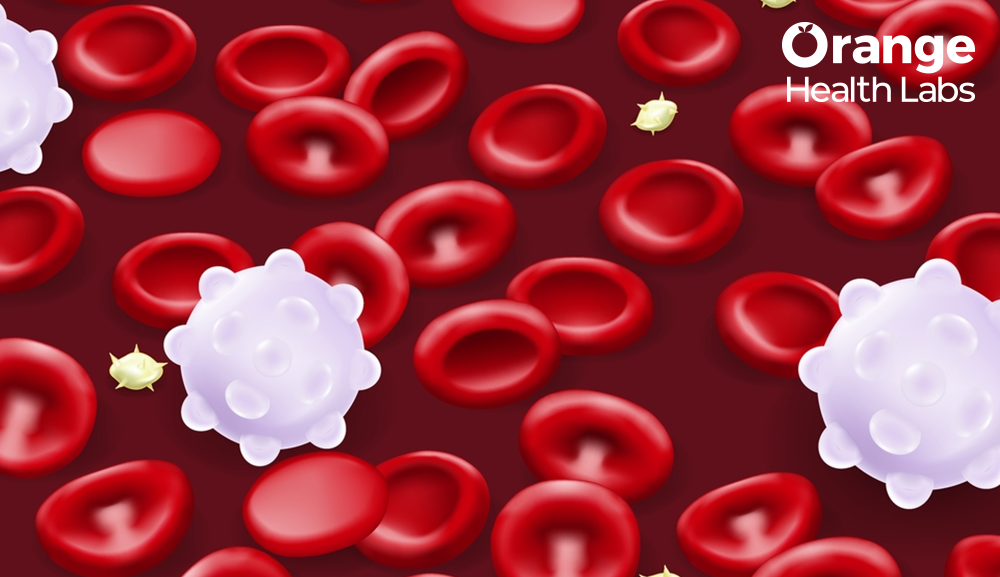Search for tests or checkups
SupportThalassemia: Understanding the Meaning Causes & Prevention

We all inherit some traits from our parents through their genes. These genes, present inside the cells of our body, serve as the foundation for our growth and development. Our eye colour, blood type, hair colour, and our personalities are all decided or majorly influenced by the genes we inherit. Unfortunately, certain medical conditions or diseases may also be transferred through the genes. Thalassemia is one such condition, a type of blood disorder caused by defective genes.
Each year, over one lakh children are born with thalassemia all over the globe. Thalassemia can eventually result in various other conditions, which can lead to significant organ dysfunction and even death. As a result, individuals with thalassemia require life-long care, and the costs associated with proper treatment are substantial. Let us discuss how exactly this condition occurs and what can be done to prevent it.
Meaning and Definition of Thalassemia
Thalassemia is a type of blood disorder developed in a person because of the inheritance of mutated genes from their parents. Thalassemia is defined as an inherited blood disorder (transferred from parents to the baby) that leads to reduced amount of haemoglobin in the body.
As you might know, the red blood cells (RBCs) in our blood are the cells responsible for oxygen uptake and its circulation through the body, which is required for the normal functioning of all body cells. Haemoglobin is a protein produced in our body naturally as a major component of RBCs. The haemoglobin in our RBCs binds with the oxygen and promotes its transfer to all body cells. In thalassemia, the haemoglobin produced in the body is less. The unhealthy RBCs with low levels of haemoglobin cannot take up enough oxygen and cannot carry it to the cells, causing anaemia (deficiency of RBCs or haemoglobin) and other diseases. Severe anaemia can lead to multiple organ failure and ultimately death.
Different Types of Thalassemia
Thalassemia types can be classified based on the affected part of haemoglobin (alpha or beta) and the severity of thalassemia (trait/minor, intermedia, or major). One haemoglobin has four protein chains (two alpha globin and two beta globin). There are two thalassemia types based on the defects in the 4 protein chains:
- Alpha Thalassemia: The alpha globin chain is made of 4 genes (2 genes from each parent). If any gene from these 4 is missing, it is called alpha thalassemia. If one or two genes are missing from the 4 genes, then that is called thalassemia trait or minor. Thalassemia minor symptoms are usually none or mild. If the alpha globin chain is missing more than two genes, it is categorised as thalassemia intermedia or thalassemia major; both have moderate-to-severe symptoms.
- Beta Thalassemia: The beta globin is made up of 2 genes (1 gene from each parent). If any one or both genes are missing, it will lead to beta-thalassemia. The symptoms can range from moderate to severe depending upon the number of genes missing.
Symptoms of Thalassemia
If you have thalassemia, you will typically become aware of the condition during childhood due to the early onset of thalassemia symptoms related to severe anaemia. On the other hand, if you have milder forms of thalassemia, then it’s possible that the disease will go unnoticed until you start experiencing anaemia symptoms, or it could be accidentally detected during routine blood tests or other medical examinations. Some thalassemia symptoms are listed below:
- Tiredness
- Paleness of skin
- Breathlessness
- Dizziness
- Headaches
- Leg cramps
- Fast heartbeat
- Difficulty concentrating
Causes of Thalassemia
There are no thalassemia causes other than acquiring the diseased genes from one’s parents. The severity, as mentioned above, depends on the number and types of genes that are missing.
Prevention of Thalassemia
Prevention efforts are aimed at reducing the chances of passing thalassemia to offspring. As thalassemia treatment during life involves high-frequency and long-duration blood transfusions and chelation therapies, preventing the disease prior to birth is crucial. Prevention measures include:
- Carrier Screening: Assessing high-risk individuals for the presence of thalassemia using various blood and genetic tests.
- Prenatal Diagnosis: Evaluating the unborn baby (foetus) for the presence of thalassemia genes before delivery in pregnant women.
- Genetic Counselling: Informing couples about the impact of thalassemia on their child's health and discussing options like pregnancy termination if necessary.
- Preconception and Preimplantation Diagnosis: Checking the mother’s egg for thalassemia genes before conception or before the introduction of the fertilised egg in the mother’s body in cases of in-vitro fertilisation.
- Public Awareness and Education: Educating medical professionals and the public about thalassemia, genetic testing, and preventive measures.
Book Tests to Check Thalassemia Disorder With Orange Health Labs
Thalassemia can be screened and diagnosed through various laboratory tests, including a complete blood count (CBC) test, peripheral blood smear, serum iron test, and DNA analysis. Follow these simple steps to get your diagnosis done with the quickest and safest help at your doorstep:
- Log into our website
- Submit your details.
- In just 60 minutes, our highly trained professionals will be at your doorstep for sample collection.
CBC Test in Bangalore | CBC Test in Mumbai | CBC Test in Hyderabad | CBC Test in Delhi | CBC Test in Noida | CBC Test in Faridabad | CBC Test in Gurgaon
New treatments are now available for thalassemia-associated symptoms and conditions. Thus, it's important to catch it early, get regular check-ups, and have support from doctors, families, and communities to lead better lives.

Difference Between Glucometer and Lab Test: Understanding The Accuracy

What is a Ferritin Test? Everything You Need to Know
